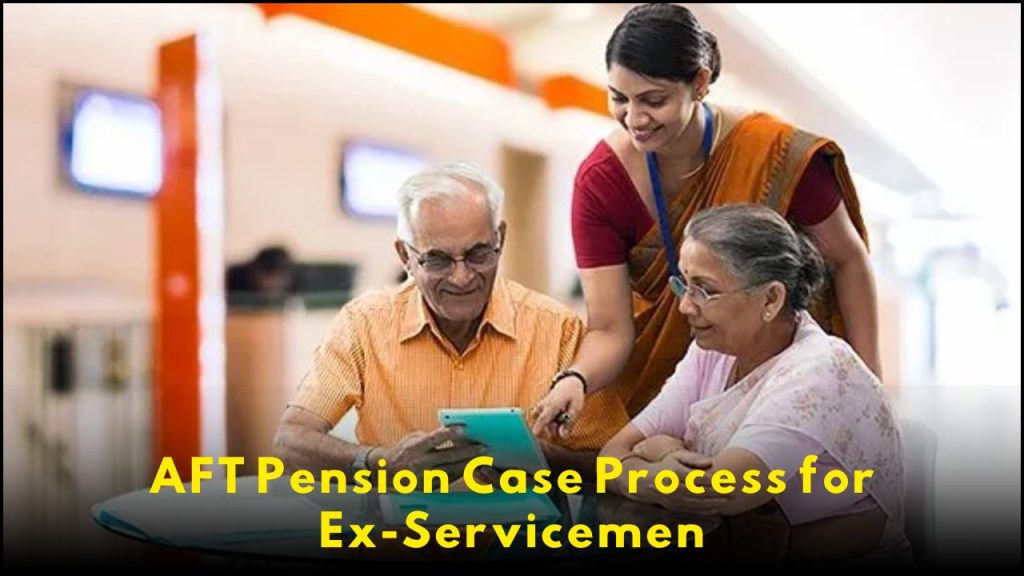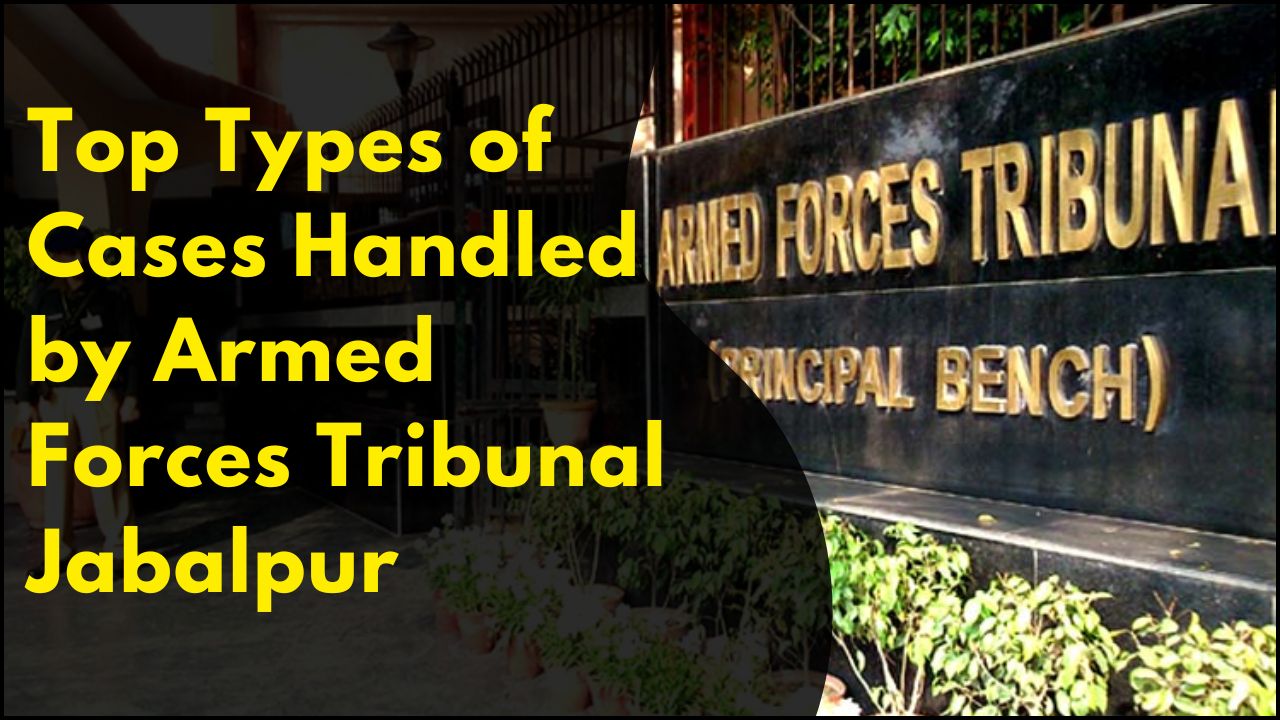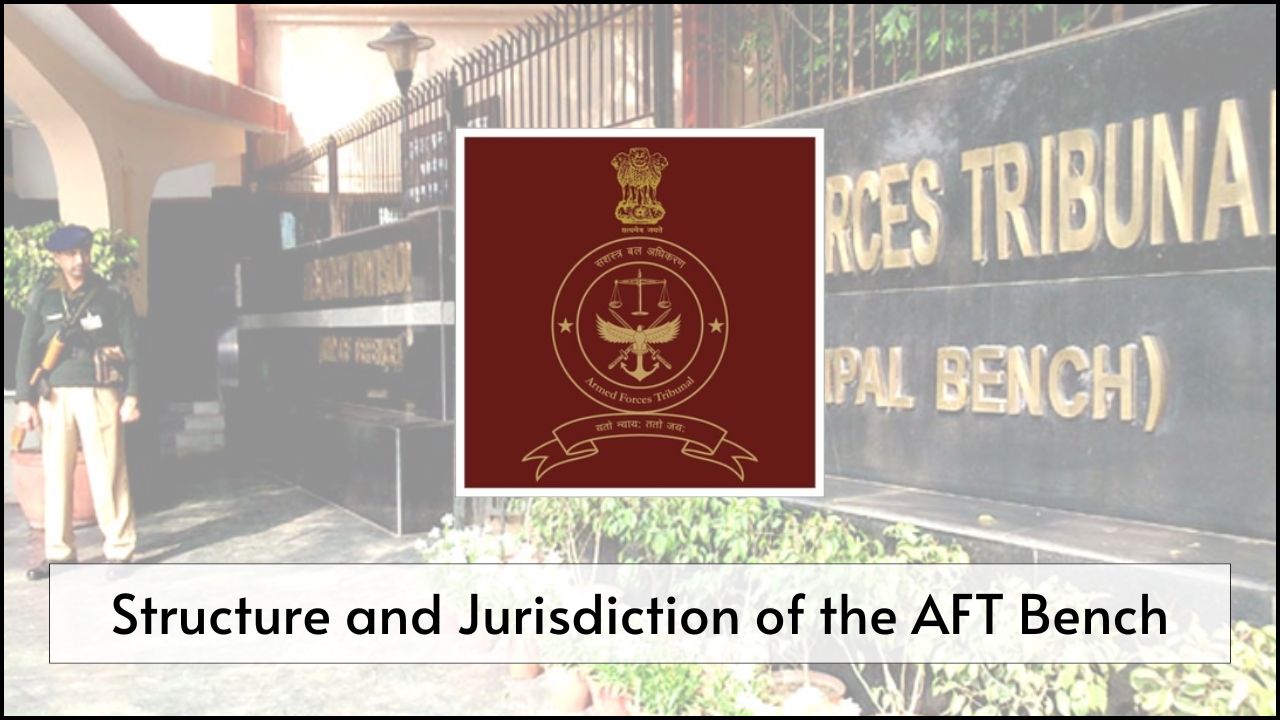
The Armed Forces Tribunal (AFT) helps ex-servicemen resolve issues related to pension, service matters, and legal claims. Many retired military personnel face delays or denials in pension benefits due to incomplete documentation, changes in rules, or service disputes. The AFT provides a legal way to address these problems. Understanding the steps involved in the AFT pension case process helps ex-servicemen and their families take the right action at the right time.
Table of Contents
Important Terms in the AFT Pension Case
- AFT (Armed Forces Tribunal)
A legal body set up to handle disputes and appeals related to military service. - Ex-servicemen
Retired personnel from the Army, Navy, or Air Force. - Pension
A monthly payment given to retired defence personnel after completing the required years of service. - PCDA (Pensions)
Principal Controller of Defence Accounts (Pensions), responsible for issuing pension payments.
Eligibility for Filing a Pension Case
- Retired personnel with service in the Army, Navy, or Air Force.
- Family members of deceased soldiers or pensioners.
- Disabled soldiers seeking disability pension.
- Personnel denied pension due to technical reasons or incorrect service records.
Documents Required
| Document Name | Purpose |
|---|---|
| Discharge Book/Service Certificate | Proof of service completion |
| PPO (Pension Payment Order) | Key document showing pension entitlement |
| Medical Records | Support for disability or injury claims |
| Correspondence with PCDA | Evidence of earlier claims or applications |
| ID and Address Proof | Identification and contact verification |
| Affidavit (if required) | Legal declaration for facts presented |
| Rejection Letter (if any) | Shows pension denial or delay |
Step-by-Step Process of Filing an AFT Pension Case
1. Verification of Pension Entitlement
- Service documents must be checked.
- Disability pension cases require medical board findings.
- Family pension cases need a death certificate and proof.
2. Preparation of Legal Petition
- Legal drafting should be done carefully.
- Details of the service must be mentioned clearly.
- Grounds of claim should be specific and supported by documents.
3. Selection of Legal Representation
- Experienced advocates who understand defence law should be chosen.
- Ex-servicemen’s cells often help with referrals.
4. Filing the Petition in AFT
- Filing is done in the AFT regional bench nearest to the petitioner.
- The petition includes a legal brief, documents, and an affidavit.
- The filing fee is minimal or waived for ex-servicemen.
5. Receipt of Diary Number
- The diary number is given as acknowledgment.
- Future tracking of the case is done through this number.
6. Admission and First Hearing
- The court decides if the case is valid.
- Notice is sent to the opposite parties, like PCDA or the Ministry of Defence.
7. Submission of Replies
- PCDA or Record Office submits replies and supporting documents.
- The court examines all evidence provided.
8. Hearings and Arguments
- Both sides present arguments.
- The judge reviews documents, facts, and service rules.
9. Final Judgment
- The court issues an order in writing.
- Pension benefits may be granted with arrears and interest.
10. Implementation of Judgment
- PCDA releases pension benefits.
- The Record Office updates service records accordingly.
Time Taken for Case Resolution
| Stage | Estimated Time |
|---|---|
| Document Collection | 1–2 weeks |
| Petition Drafting | 1–2 weeks |
| Filing in AFT | 1 week |
| Admission and Notices | 2–4 weeks |
| Hearings and Final Decision | 3–6 months (can vary) |
| Implementation of Judgment | 1–3 months after the order is issued |
Common Reasons for Pension Disputes
- Incorrect service records
- Denial of disability pension
- Non-grant of family pension
- Delay in the issue of PPO
- Change in pension rules
- Transfer of pension to dependents
Tips for a Strong Case
- Maintain all records in proper order.
- Get medical opinions from authorised hospitals.
- Apply through an advocate familiar with AFT matters.
- Keep communication copies with the PCDA or the Record Office.
- File the case within the limitation period (usually 3 years from the cause of action).
Helpful Organisations for Ex-Servicemen
| Organisation | Support Provided |
|---|---|
| Zila Sainik Board | Documentation help, pension advice |
| Kendriya Sainik Board | Welfare schemes and financial aid |
| ECHS (Ex-Servicemen Contributory Health Scheme) | Health-related support |
| Armed Forces Tribunal Legal Aid | Free or subsidised legal help |
| Regimental Associations | Record-related guidance |
Points to Remember
- AFT is a legal body, not an administrative office.
- Cases must be backed by facts and documents.
- Legal notices must be served on the opposite parties.
- Delay in filing without a valid reason may lead to rejection.
- Judgment must be implemented by authorities within the given time frame.
In Summary
The AFT pension case process gives hope to ex-servicemen and their families who face injustice in pension matters. A clear understanding of steps, timely action, and proper documentation helps in receiving the rightful pension. A well-prepared case backed by genuine records often leads to a favourable decision. Legal support from professionals and guidance from ex-servicemen welfare boards ensures smoother handling of pension claims.





